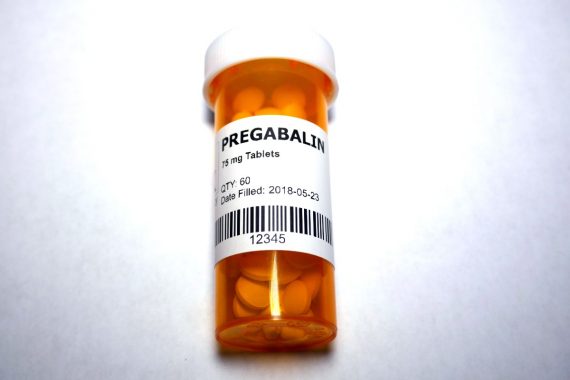Physiotherapists could prescribe pregabalin again to take pressure off GPs

The Government is consulting on changes that would allow physiotherapists to prescribe pregabalin and gabapentin once more to take pressure off GPs.
Under the proposals, physiotherapist independent prescribers would be able to also provide codeine and tramadol.
Physiotherapists were previously able to prescribe tramadol, gabapentin and pregabalin prior to changes in their controlled drug scheduling, the consultation notes.
Making the changes would ‘make it more convenient and safer for patients to get the medicines they need at the time and place they need them’.
Under current rules, patients often need to be referred to another prescriber to get the pain medicines, leading to ‘avoidable delays’.
And the need for additional appointments places extra demand on GPs, the consultation notes.
‘These delays can have a direct impact on patient outcomes, especially where timely pain management is essential to recovery and rehabilitation,’ it states.
The change would also make services more efficient by making ‘best use of physiotherapist independent prescribers’ clinical expertise’ and reducing pressure on primary care, it adds.
Such changes had already been consulted on in 2020 and the Commission for Human Medicines is supportive, the consultation says.
Under current legislation physiotherapy prescribers can already prescribe seven controlled drugs; temazepam, lorazepam, diazepam, dihydrocodeine, morphine, fentanyl and oxycodone.
Pregabalin and gabapentin were reclassified as class C controlled drugs in 2019 over concerns around misuse, illegal diversion of the drugs and addiction.
A report published last month by the NHS Business Services Authority found a further fall in the prescription of dependency forming medicines in England.
But gabapentinoids are the only drug in the category to increase with 17 million items prescribed in 2024/25 compared with 11 million in 2015/16.
GPs are advised to carry out regular reviews for people taking dependency-forming drugs for chronic pain.
Discussions around withdrawing an opioid, benzodiazepine, gabapentinoid, Z-drug or antidepressant should happen when the medicine is no longer benefiting the patient, problems of dependency have developed or the harms outweigh the benefits, NICE said in 2021.
The consultation is open for 12 weeks and will close on 28 October 2025.
Portfolio careers
What is the right portfolio career for you?

Visit Pulse Reference for details on 140 symptoms, including easily searchable symptoms and categories, offering you a free platform to check symptoms and receive potential diagnoses during consultations.
Related Articles
READERS' COMMENTS [6]
Please note, only GPs are permitted to add comments to articles













More evidence that the Government doesn’t understand the problem, won’t effectively consult with those that do understand the problem (GPs) and consequently won’t take any action that actually helps.
This clever with a drug of addiction!
addictive drugs that don’t work. why?
So long to keeping a lid on addictive drugs . Doesn’t their physio work? Maybe they should be seeing people rather than emailing them a leaflet as seems to happen round my way
Show me the evidence that these drugs work other than turning them into addicts
I hope all the above filled in the consutlatoin survey too.
It is wider, and covers a number of things that should not be happening.
Why are physios prescribing these things anyway?
What skills do they have in managing addiction, side effects (including neuropsychiatric with tramadol and pentinoids), and withdrawal programmes and withdrawal effects?
Why would the be initiating (and probably NOT maintaning repeat prescriptions, which they would require us to sign for) of second and third and fourth line drugs which are not just restricted for use by GPs, but GPs are actively punished if they are prescribed by anybody – through the QOF scores ?